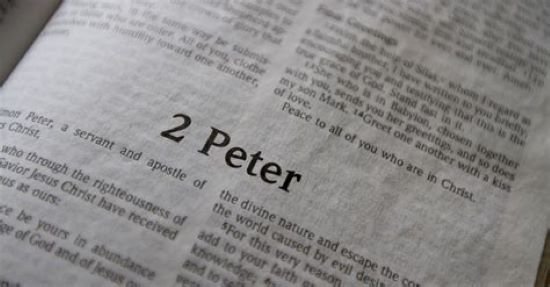Peter Continues to Warn the Churches
It is not a question of if, but a matter of when. False teachers and false prophets have come, they will continue to come, seeking to introduce destructive heresies until the Lord returns. In his 2nd Epistle–which is Peter’s “testament,” i.e., his final words to the churches–Peter warns the churches of his day that false teachers and false prophets were already working their way into the churches and wreaking havoc. Peter tells us that these false teachers will speak false words and utter false prophecies. They blaspheme God and they seek to secretly introduce destructive heresies. They willfully seek to exploit the people of God–looking for any struggling saint weak in faith, or for those who have even the slightest bit of apathy regarding the truth of Christian doctrine. Their doctrinal errors provide justification for indulging the lusts of the flesh, instead of manifesting those Christian virtues which Peter has described in verses 5-7 of the first chapter of this letter. As Peter has told us in verse 19 of chapter one, we have the prophetic word (the Scriptures) which is more sure than any human opinion and which is the light shining in the dark, and the standard by which we discern truth from error.
As we continue to study 2 Peter, we come to Peter’s dire warning (in this chapter and in the next) about false prophets and false teachers who will arise, infiltrate the churches, and seek to lead the people of God astray. There is a very good reason why believers need to be concerned with how they live, and why they should live their lives in eager anticipation of Jesus’ return–so as to contrast themselves with those who have been deceived. The false teachers and false prophets described by Peter were undermining the very foundation of the Christian life–that God has saved us from the wrath to come, and then called us to reflect his glory through our conduct. Even as they encourage professing Christians to live no differently than the pagans around us, the false teachers are denying one of the fundamental doctrines of Christian theology; the bodily return of Jesus Christ at the end of the age to raise the dead, judge the world, and make all things new.
To read the rest, follow the link below:
Read More
